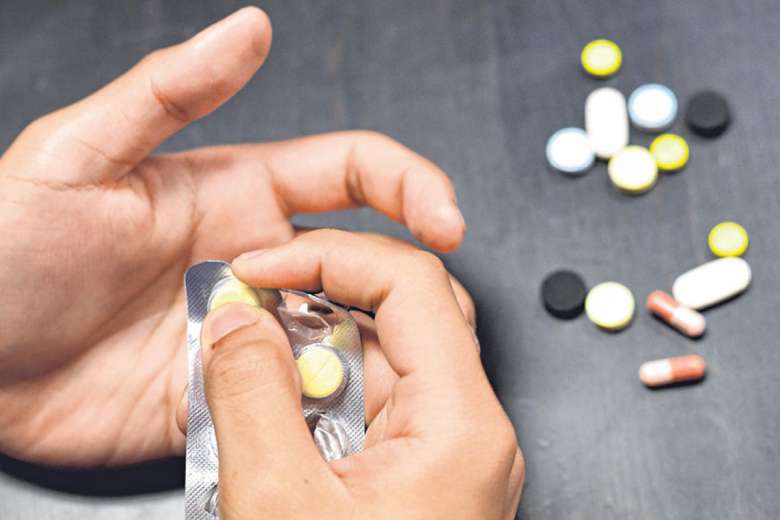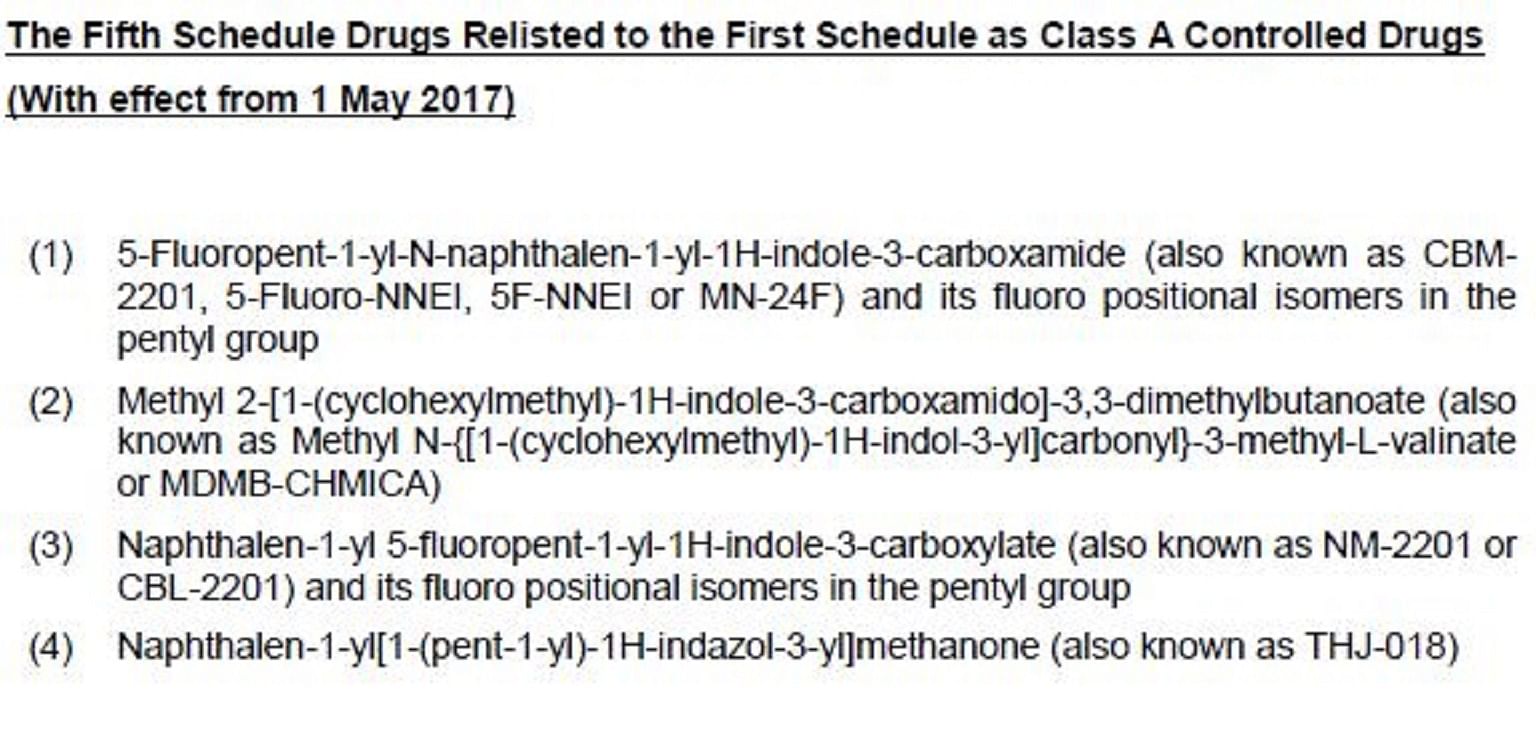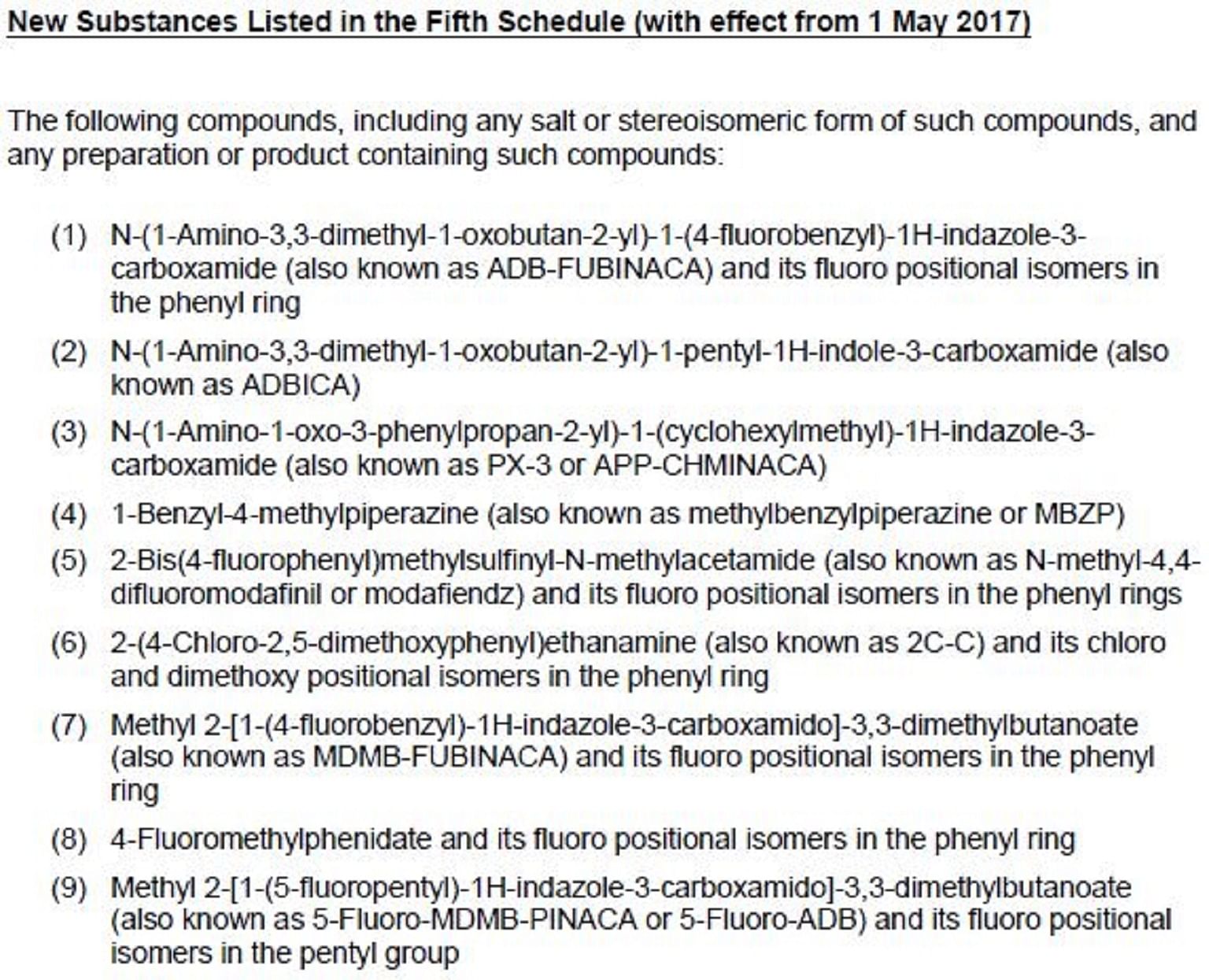4 substances with effects like controlled drugs' reclassified as Class A controlled drugs: CNB
Sign up now: Get ST's newsletters delivered to your inbox

Anyone found guilty of trafficking Class A controlled drugs will face at least five years' jail and five strokes of the cane.
PHOTO: ARIFFIN JAMAR
SINGAPORE - Four New Psychoactive Substances (NPSs) will be re-classified as Class A controlled drugs from May 1, with a fifth NPS being newly added under the same category, the Central Narcotics Bureau said in a news release on Friday (April 28).
NPSs refer to substances which produce similar effects as controlled drugs such as cannabis, cocaine, "ecstasy", methamphetamine or heroin.

The first four substances are currently in the fifth schedule of the Misuse of Drugs Act (MDA), and are being shifted to the first schedule of the MDA.
The first schedule of the MDA lists substances with properties that might cause dependence and present a serious risk of abuse.

The fifth substance is one commonly known as U-47700. The Commission on Narcotics Drugs in March 2017 listed U-47700 in Schedule I of the Single Convention on Narcotics Drugs 1961.
As a signatory to the Convention and noting that U-47700 is an NPS with no licit use, Singapore is listing the substance as a Class A controlled drug.
The move means that the trafficking, manufacture, import, export, possession or consumption of these five NPSs will constitute an offence under the MDA.
Anyone found guilty of trafficking Class A controlled drugs will face at least five years' jail and five strokes of the cane.
Those who reoffend or sell drugs to young or vulnerable people will also be liable for enhanced penalties.
CNB will also be empowered to subject NPS abusers to supervision, commit them to a drug rehabilitation centre for treatment and rehabilitation, or charge them in court.

Additionally, CNB is listing nine new NPSs in the fifth schedule of the MDA, which enables CNB to seize the substances, restricting their circulation while research and industry consultations are conducted.
CNB in its release said there has been a rapid increase in the number, type and availability of NPSs worldwide.
There were at least 730 NPSs identified last year, according to a report released in November last year by the World Health Organisation Expert Committee on Drug Dependence.
Many of these substances have been reported to have no licit medical uses, and abuse of the substances has been linked to adverse physical and psychological reactions.
These include seizures, paranoia, hallucinations and even death.


